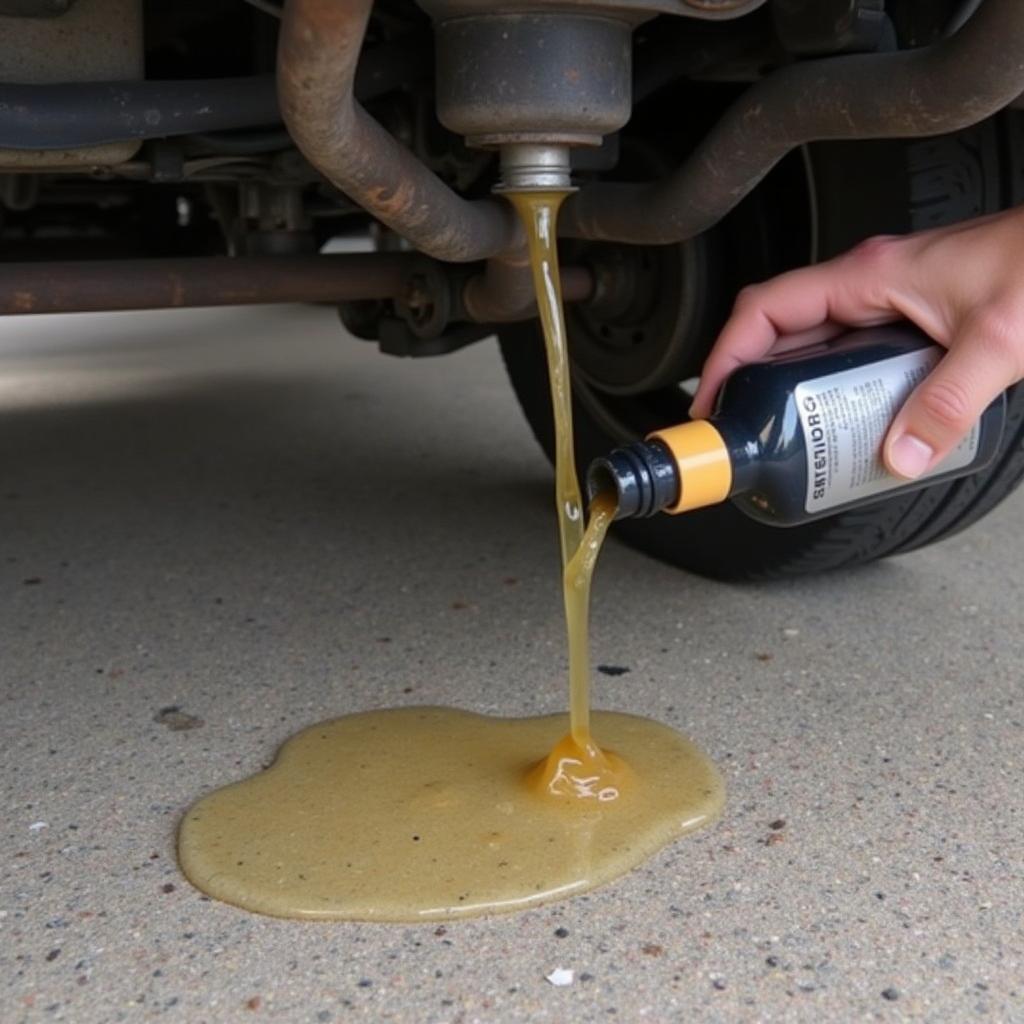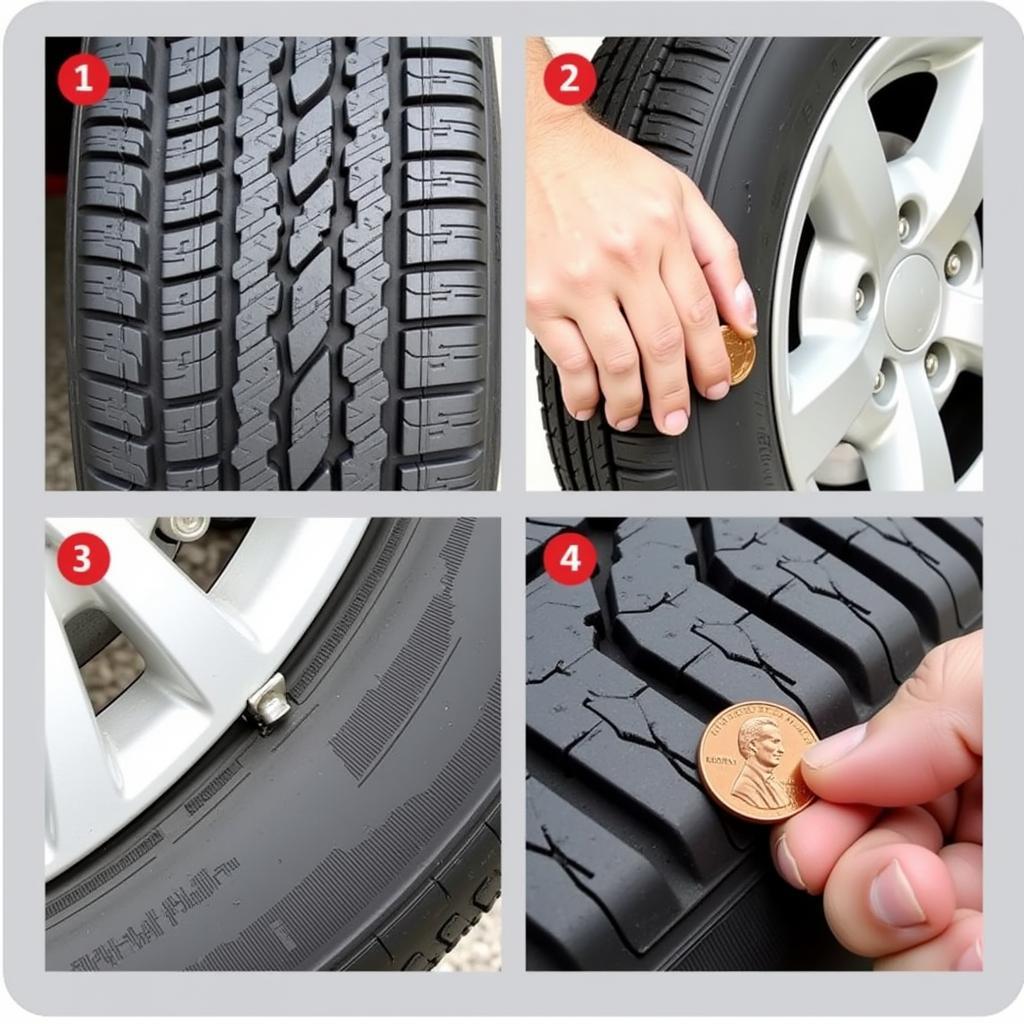Different Car Problems can range from minor annoyances to major malfunctions, leaving you stranded and frustrated. Understanding the common issues and how to address them can save you time, money, and unnecessary stress. This guide will equip you with the knowledge to diagnose and potentially fix various car troubles, whether you’re a car owner, a mechanic, or an automotive technician.
Cars are complex machines with numerous interconnected systems. A problem in one area can often trigger issues elsewhere. Understanding this interconnectedness is crucial for effective troubleshooting. For instance, a faulty fuel injector can lead to decreased engine performance and even damage to the catalytic converter. Can different fuel cause car problems? Find out more about fuel-related issues.
Understanding Different Car Problems: Engine Issues
Engine problems are among the most common and often the most serious. Symptoms like unusual noises, rough idling, or loss of power should never be ignored. A simple issue like a loose spark plug can quickly escalate into a major engine repair if left unaddressed.
Common Engine Problems and Their Solutions
- Overheating: Check the coolant level and radiator for leaks. A faulty thermostat or water pump could also be the culprit.
- Misfiring: This can be caused by faulty spark plugs, ignition coils, or fuel injectors.
- Loss of Power: This could indicate a problem with the fuel system, air intake, or exhaust system.
- Strange Noises: Knocking or ticking sounds could indicate problems with the valves, pistons, or connecting rods.
Electrical System Malfunctions: Different Car Problems
Electrical problems can be incredibly frustrating to diagnose due to their intermittent nature and the complexity of modern car wiring. A simple loose connection can cause a cascade of seemingly unrelated problems.
Diagnosing Electrical Issues
- Check the Battery: A weak or dead battery can cause a variety of problems, from starting issues to dimming headlights.
- Inspect the Fuses: A blown fuse is a common cause of electrical malfunctions. Always check the fuse box first before delving into more complex diagnostics.
- Examine the Wiring: Look for loose connections, corrosion, or damaged wires.
Different sounds mechanical problems on cars make can help you pinpoint the source of mechanical issues.
Transmission Troubles: Identifying Different Car Problems
Transmission problems can range from slipping gears to complete failure. Regular maintenance, including fluid changes, is crucial for preventing these issues.
Common Transmission Problems
- Slipping Gears: This can be caused by low transmission fluid, worn clutches, or a faulty valve body.
- Rough Shifting: This could be a sign of a worn synchronizer or a problem with the shift linkage.
- Fluid Leaks: Check for leaks around the transmission pan or seals.
 How to Detect a Transmission Fluid Leak
How to Detect a Transmission Fluid Leak
Brake System Issues: Different Car Problems and Safety Concerns
Brake problems are critical safety concerns that should be addressed immediately. Ignoring brake issues can lead to accidents and serious injuries.
Recognizing Brake Problems
- Spongy Brake Pedal: This could indicate air in the brake lines or a faulty master cylinder.
- Squealing or Grinding Noises: Worn brake pads or rotors are often the cause of these noises.
- Pulling to One Side: This could be a sign of a stuck caliper or uneven brake pad wear.
“Regular brake inspections are crucial for ensuring your safety on the road,” says John Smith, Senior Automotive Technician at ABC Auto Repair. “Don’t wait until you hear a squeal or feel a pull to check your brakes.”
Matrix car rear differential problems provides in-depth information on rear differential issues, which can manifest as various driving problems. Understanding these issues can be crucial for accurate diagnosis.
Suspension and Steering Problems: Different Car Problems Affecting Handling
Problems with the suspension or steering system can affect the handling and stability of your vehicle.
Common Suspension and Steering Issues
- Uneven Tire Wear: This could indicate a problem with the alignment, shocks, or struts.
- Rough Ride: Worn shocks or struts are a common cause of a bumpy ride.
- Steering Wheel Vibration: This could be caused by unbalanced tires, worn tie rod ends, or a bent wheel.
Car front differential problems can also contribute to steering and handling issues.
 Checking for Uneven Tire Wear
Checking for Uneven Tire Wear
“Addressing suspension issues promptly not only improves ride comfort but also extends the life of your tires,” adds Jane Doe, Lead Mechanic at XYZ Auto Services.
Conclusion: Tackling Different Car Problems Effectively
Different car problems can be challenging, but with a systematic approach and the right knowledge, you can effectively diagnose and often resolve many common issues. Remember, regular maintenance is the key to preventing many car problems in the first place. If you’re unsure about anything, don’t hesitate to contact us at AutoTipPro for expert advice and assistance. Our phone number is +1 (641) 206-8880, and our office is located at 500 N St Mary’s St, San Antonio, TX 78205, United States.
Car differential problems and solutions provides comprehensive information on differential issues and how to address them.






Leave a Reply